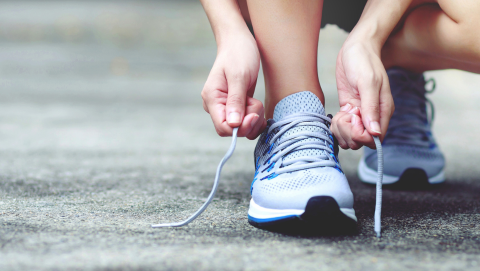Beyond Physical Fitness: The Benefits of Regular Exercise
Lauryn Marlar Extension Intern, Cindy Jenkins Extension Assistant Professor

Sticking with a regular exercise routine can be a challenge. We frequently hear of people starting a new exercise routine to help them reach a weight loss goal or to help them change their physical appearance. However, engaging in regular physical activity has more benefits than just the ones you can see.
Reduce Risk of Common Diseases
It may not be an immediate result, but doing regular exercise can help you fight disease. According to the CDC, regular physical activity will help to reduce your risk of heart disease, stroke, type 2 diabetes, cold/flu, and some cancers. Those who routinely exercise are less likely to die from infectious diseases, such as COVID-19. This is largely because exercise helps your body maintain good blood circulation, lower high blood pressure, and improve levels of good cholesterol.
Build Strong Bones
As we age, our bones can become weaker and we are at a higher risk of osteoporosis. Weakened bones can put you at a higher risk of bone breaks and fractures. Research shows that exercise helps the bones to be stronger. Just as muscles become stronger from physical activity, our bones can adapt the same way. Bone is actually made up of living cells that respond to the forces we place on them. When you exercise and apply more force to your bones, the bone responds by growing thicker. Thicker bones help prevent osteoporosis and lower your risk of fractures.
Get Better Sleep
Regular exercise has been shown to benefit your sleep. This is important as sleep is crucial to our bodies ability to function well. Research shows that regular physical activity improves total sleep time as well as the quality of sleep you get. Exercise helps you to fall asleep faster and to stay asleep longer. Those who don’t exercise regularly still can benefit from improved sleep on the days they do engage in physical activity and a few days following.
Improve Mental Health
Physical activity can help boost your mental health in a few different ways. When you exercise, your brain releases chemicals, called endorphins, which help you to feel good. Exercise can also provide an outlet to relieve the feeling of stress, anxiety, and depression. Engaging in regular exercise can also help you build more confidence as you reach your fitness goals.
Conclusion
There are more important health benefits to exercise than just improving your physical fitness. Exercise helps reduce your risk of many common infectious and chronic diseases. It also helps your bones to stay strong as you age. Additionally, exercise can improve your sleep quality and your overall mental health.
References
American Academy of Orthopedic Surgeons . (2020, July). Exercise and bone health . OrthoInfo. https://orthoinfo.aaos.org/en/staying-healthy/exercise-and-bone-health
American Heart Association. (2022, October 10). Why is physical activity so important for health and well-being?. www.heart.org. https://www.heart.org/en/healthy-living/fitness/fitness-basics/why-is-physical-activity-so-important-for-health-and-wellbeing
Centers for Disease Control and Prevention. (2023, August 1). Benefits of physical activity. Centers for Disease Control and Prevention. https://www.cdc.gov/physicalactivity/basics/pa-health/index.htm
Kredlow, M. A., Capozzoli, M. C., Hearon, B. A., Calkins, A. W., & Otto, M. W. (2015, January 18). The effects of physical activity on sleep: A meta-Analytic Review - Journal of Behavioral Medicine. SpringerLink. https://link.springer.com/article/10.1007/s10865-015-9617-6
Mayo Foundation for Medical Education and Research. (2017, September 27). Depression and anxiety: Exercise eases symptoms. Mayo Clinic. https://www.mayoclinic.org/diseases-conditions/depression/in-depth/depression-and-exercise/art-20046495

